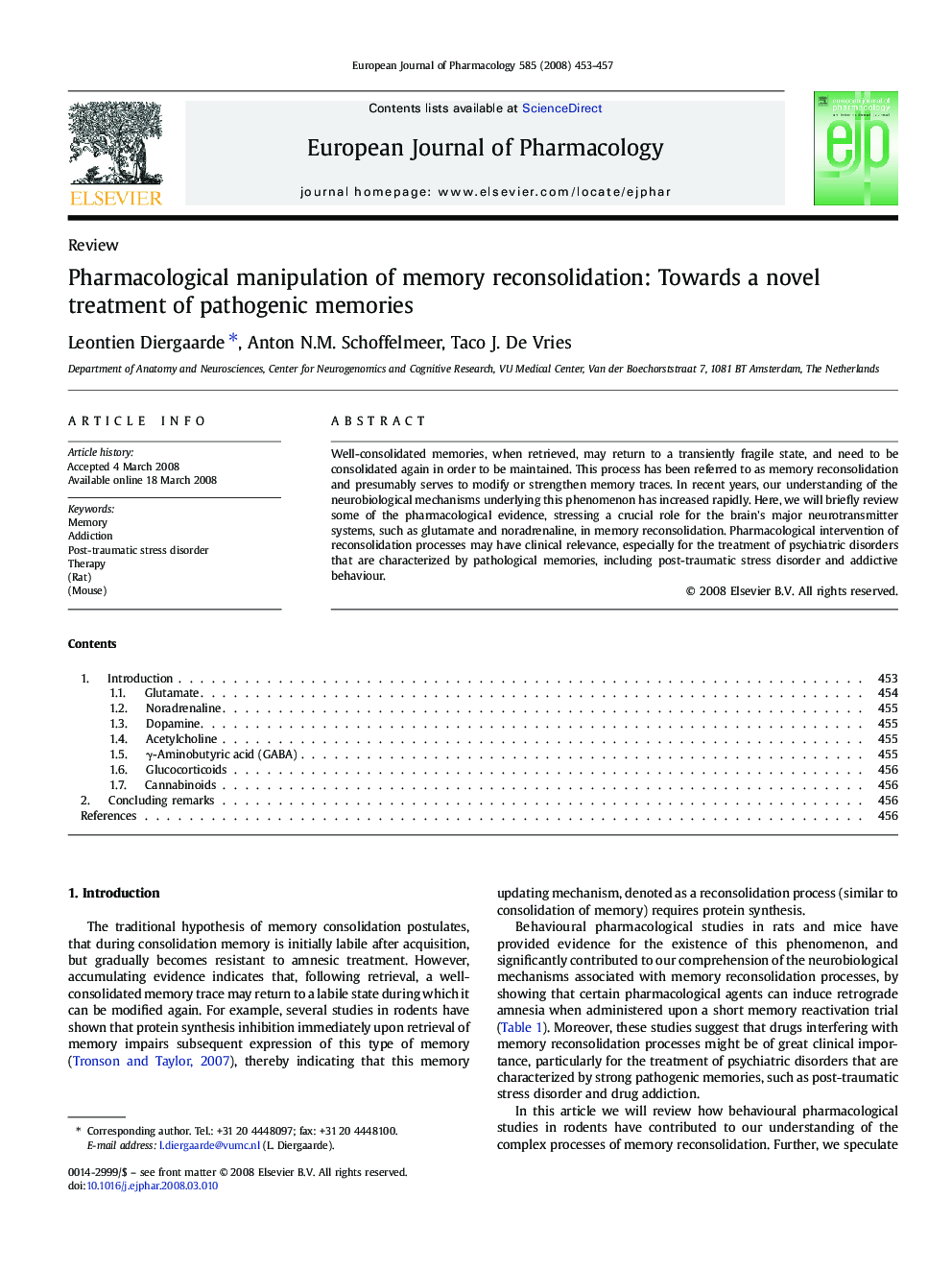| کد مقاله | کد نشریه | سال انتشار | مقاله انگلیسی | نسخه تمام متن |
|---|---|---|---|---|
| 2535160 | 1559112 | 2008 | 5 صفحه PDF | دانلود رایگان |

Well-consolidated memories, when retrieved, may return to a transiently fragile state, and need to be consolidated again in order to be maintained. This process has been referred to as memory reconsolidation and presumably serves to modify or strengthen memory traces. In recent years, our understanding of the neurobiological mechanisms underlying this phenomenon has increased rapidly. Here, we will briefly review some of the pharmacological evidence, stressing a crucial role for the brain's major neurotransmitter systems, such as glutamate and noradrenaline, in memory reconsolidation. Pharmacological intervention of reconsolidation processes may have clinical relevance, especially for the treatment of psychiatric disorders that are characterized by pathological memories, including post-traumatic stress disorder and addictive behaviour.
Journal: European Journal of Pharmacology - Volume 585, Issues 2–3, 13 May 2008, Pages 453–457